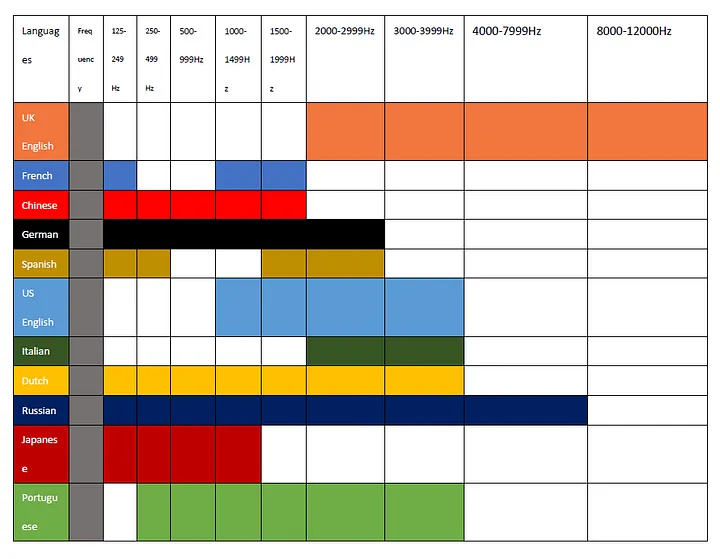Why is it that even after decades of studying, English doesn’t sound clear?
I’ve studied English for decades, attended school, and visited the United States and the United Kingdom several times, but English still doesn’t sound clear to me. I understand that language needs to be acquired through daily life, but I’ve always thought it might be too much.
There could be various reasons for this, but according to Language Insights (https://medium.com/language-insights), each language has a dominant frequency range, and this fact may be why some people struggle to understand English.
Human hearing frequencies range from 20Hz to 20kHz, but the entire spectrum is too wide for complete use in language recognition. Similar to radio frequencies, each frequency range is allocated for different functions, allowing the potential utilization of the entire spectrum. The problem is that we become less sensitive to some of them over time, making it almost impossible to hear specific frequency ranges. In the case of language, this can create difficulties in learning foreign languages. In reality, each language occupies a dominant frequency range, and a language user becomes more sensitive to the frequency range of their language while becoming less sensitive to other frequency ranges, making it difficult to understand foreign languages.
For example, British English and American English share a common language but have different frequency ranges. British English has a high pitch, starting at 2,000Hz and peaking at 12,000Hz, while American English starts at 1,000Hz and peaks at 4,000Hz. On the other hand, most languages, including French, Chinese, German, Spanish, and Japanese, are generally low-frequency languages, averaging around 2,000Hz. This difference is said to have an impact on language learning.

One might assume that learning English and French, being languages from the same language family, would be easy for each other. However, it’s noted that while the British find it easy to learn French, the French struggle to learn English. This could be because the British are sensitive to French frequencies, while the French struggle to hear the high-frequency range of English.
There is no data on the frequency range of Korean, but it is assumed to be similar to Japanese, belonging to a very low-frequency range (125-1500Hz). It seems challenging for a Korean familiar with this frequency range to easily understand English, which has a much broader frequency range (800-12000Hz). There may be various reasons why we found learning English challenging.

답글 남기기